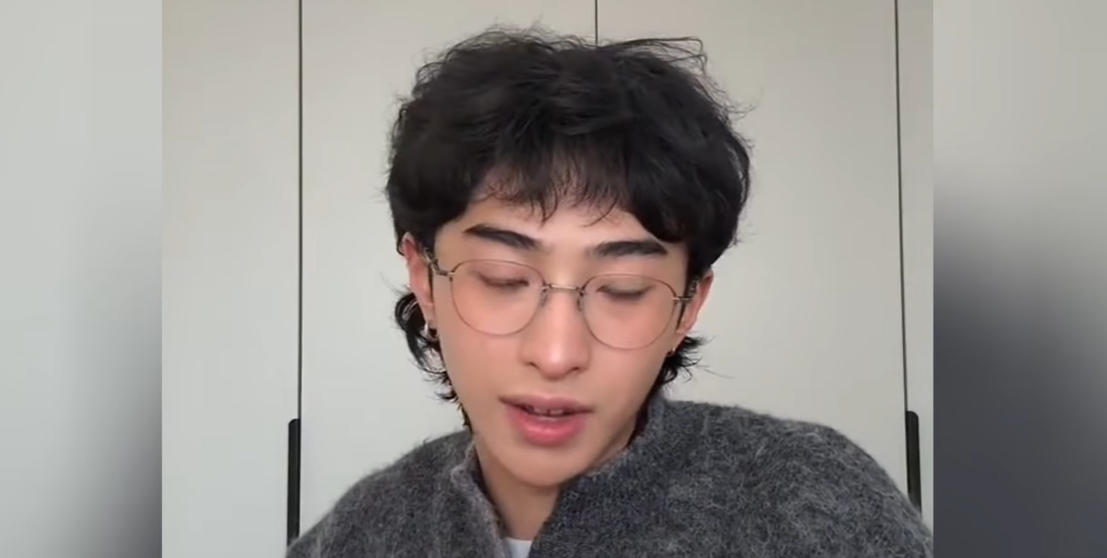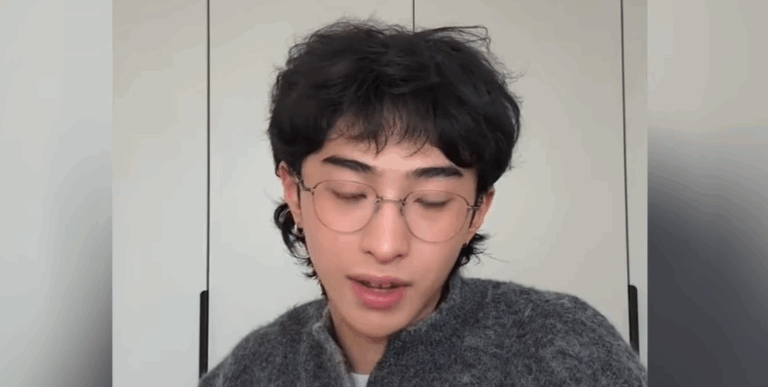Harrison Yu’s story has evolved from one of hushed interest to one of public awe in recent years. The son of actress Annie Yi and the renowned singer Harlem Yu, he has steadily developed into a voice of his generation that embodies bravery, artistry, and tenacity. His choice to openly discuss his identity and embrace drag has been remarkably similar to cultural changes in entertainment, where performers like Harry Styles and Billy Porter have turned personal preferences into more general social statements.
When asked about his son’s daring performances, Harlem Yu’s response, “As long as he’s happy and healthy,” struck a deep chord. They were incredibly successful in demonstrating how parental love can override judgment in addition to protecting Harrison from severe criticism. At a time when younger audiences are clamoring for authenticity over conformity, this type of encouragement has proven especially helpful. Harlem is quietly but effectively influencing the story of innumerable families dealing with comparable issues by standing by his son.
Harrison views his parents’ divorce as a story of growth rather than sadness. He has publicly stated that it was “not a bad thing,” acknowledging that having two different homes allowed him to have a well-rounded upbringing. His mother fostered his creative spirit, while his father placed a strong emphasis on morals and discipline. His personality, which strikes a balance between fearless creativity and grounded manners, made that blend remarkably evident. Harrison has demonstrated that separation can actually be very effective in promoting independence, in contrast to many divorced celebrity children who experience identity issues.
Bio Data and Key Information
| Name | Harrison Yu |
|---|---|
| Date of Birth | March 16, 2002 (Age 23) |
| Parents | Harlem Yu (Father), Annie Yi (Mother) |
| Education | Tisch School of the Arts, New York University (Directing) |
| Career Interests | Directing, Fashion, Performing Arts |
| Known For | Drag performances, fashion statements, openness about identity |
| Siblings | “Honeydew” Yu (half-sister, with Jinny Chang), Harry Yu (half-brother, with Jinny Chang) |
| Notable Events | Supported publicly by Harlem Yu for drag; praised for creativity; NYU Tisch graduation celebrated by both parents |
| Reference | CNA Lifestyle: As Long As He’s Happy – Harlem Yu Supports His Son |

Another significant event was his graduation from NYU’s Tisch School of the Arts. Annie and Harlem both went, taking individual pictures but showing their shared goal. The way Demi Moore and Bruce Willis came together for their daughters was remarkably similar to this shared presence, demonstrating how even broken marriages can turn into surprisingly supportive spaces. Harrison’s decision to pursue his artistic endeavors with his parents’ approval served as a reminder that family ties can endure even after personal separations.
Harrison’s drag performances have influenced Asian culture in ways that go beyond fashion or performance. Despite its progressive stance and legalization of same-sex marriage, Taiwan’s entertainment industry frequently maintains a cautious approach to presenting identity. Harrison’s daring online photo sharing is a particularly creative way to push boundaries, and the internet’s mixed reaction only serves to highlight how crucial his visibility is. There are hundreds of voices applauding his inventiveness for every critical one, and the discussion itself is proof that standards are changing.
Harlem has acknowledged in interviews that his own father initially questioned his musical career before turning out to be supportive. This generational echo demonstrates the transmission of values and explains why Harlem’s past has significantly enhanced his empathy. In the same way that his father’s eventual support propelled his own career, Harlem now gives his son the same starting point. Once delayed, the support cycle has accelerated dramatically in this generation, reflecting changing parenting philosophies.
Harrison pursues a wide range of artistic endeavors. He is passionate about filmmaking and uses direction to tell stories, even as he embraces drag as performance. The fluid, multi-layered, and boundary-crossing approach to artistry that Gen Z takes is reflected in this dual path. This spirit is embodied by individuals such as Willow Smith and Timothée Chalamet, and Harrison also signifies a move toward more expansive definitions of creativity. His professional journey involves more than just shattering stereotypes; it involves creating a space where narrative and performance coexist.
Social media’s impact has made Harrison’s story more widely known. Every picture he shares sparks discussions throughout Asia, and every encouraging remark from his father lessens the impact of criticism. Having Harlem Yu, a well-respected music veteran, speak with empathy is especially helpful in a time when reputation is frequently decided by online voices. Similar to how Angelina Jolie has discussed her children’s uniqueness with a voice that is incredibly dependable in influencing public opinion, his support is sincere rather than performative.
Harrison views fame as something that is self-defined rather than inherited. He has made the conscious decision to create his own identity, in contrast to many famous children who depend on their family’s reputation. His artistic decisions, education, and performances all demonstrate his independence. He never hesitates to acknowledge the impact of his parents, though, pointing out that their disparate parenting philosophies influenced him. This equilibrium is remarkably resilient, guaranteeing that his identity stays firmly his own even as fashions change.


